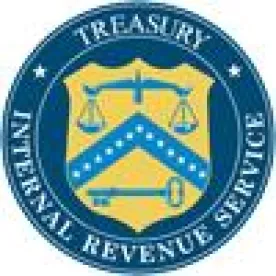On August 28, 2020, the IRS issued Notice 2020-65 (the “Notice”) to provide guidance with respect to the Memorandum on Deferring Payroll Tax Obligations in Light of the Ongoing COVID-19 Disaster, issued by President Trump to the Secretary of the Treasury on August 8, 2020 (the “Memorandum”). The Memorandum directed the Secretary of the Treasury to defer the withholding, deposit and payment of the employee portion of the Social Security tax, imposed at a rate of 6.2% (“Applicable Taxes”), with respect to certain wages paid during the period beginning September 1, 2020, and ending December 31, 2020 (the “Deferral Period”), without the imposition of any penalties, interest, or additions to tax.
Pursuant to the Notice, employers are permitted, but not required, to delay withholding and payment of Applicable Taxes (but not the Medicare tax) with respect to employees receiving applicable wages of less than $4,000 for a bi-weekly pay period (approximately $104,000 in annual base wages). If applicable wages paid to the employee during a bi-weekly pay period equal or exceed $4,000 (or equivalent threshold amount with respect to other pay periods), no deferral of Applicable Taxes with respect to such employee is permitted. The determination of the amount of an employee’s wages for purposes of the Notice is made on a pay period-by-pay period basis. For example, if an employee receives less than $4,000 of applicable wages for each bi-weekly pay period during the Deferral Period, and receives an annual bonus during the last pay period of the Deferral Period, the employee would be eligible for deferral of Applicable Taxes for each bi-weekly pay period during the Deferral Period other than the final bi-weekly pay period.
Once Applicable Taxes have been deferred under the Notice, the employer must withhold and pay such taxes ratably during the period beginning January 1, 2021, and ending April 30, 2021 (the “Withholding Period”); otherwise, interest, penalties and other additions to tax will begin to accrue on May 1, 2020. The Notice further provides that, if necessary, employers may make arrangements to otherwise collect the total deferred taxes from the applicable employee.
If an employer withholds the deferred Applicable Taxes ratably during the Withholding Period, that employer’s deferral will cause the Applicable Taxes of an employee to double for the first four months of 2021 (assuming that the employee’s wages remain unchanged). Employers therefore should consider the financial impact on employees of the increased withholding during the Withholding Period, the importance of disclosure of the consequences of the tax deferral to employees, and whether, even if disclosure is made, the possibility of employee relations issues when employees’ payroll taxes sharply rise.
The Notice leaves at least three important questions unanswered. First, the Notice does not mention any election by the employee with respect to the deferral, raising the question whether an employer has any obligation to defer Applicable Taxes in response to an employee’s request. The Notice’s silence on this point presumably means that the employer may unilaterally choose to defer the Applicable Taxes of its eligible employees.
Second, the Notice does not address the consequence if an employee leaves after deferral of Applicable Taxes but before the full amount of such taxes can be withheld during the Withholding Period because, for instance, employment is terminated prior to April 30, 2021. The Notice’s reference to employers’ ability to make other arrangements to collect the deferred Applicable Taxes from employees suggests employers may require a former employee to pay the unpaid deferred Applicable Taxes from some source other than wages from the employer. This raises the question of how the employer would enforce such obligation against a former employee and, if the former employee did not pay, whether the employer would be required to bear the unpaid deferred Applicable Taxes.
Finally, the Memorandum directed the Secretary of the Treasury to “explore avenues, including legislation, to eliminate the obligation to pay” any deferred Applicable Taxes. The Notice does not provide any further insight on this point. As such a result would likely require Congressional action, it remains to be seen if forgiveness of the deferred Applicable Taxes will ultimately occur.
Based on these considerations and other uncertainties surrounding the deferral, the U.S. Chamber of Commerce and a coalition of trade organizations have indicated, in a letter dated August 18, 2020, that many of their members are not likely to choose to defer Applicable Taxes.







 />i
/>i
